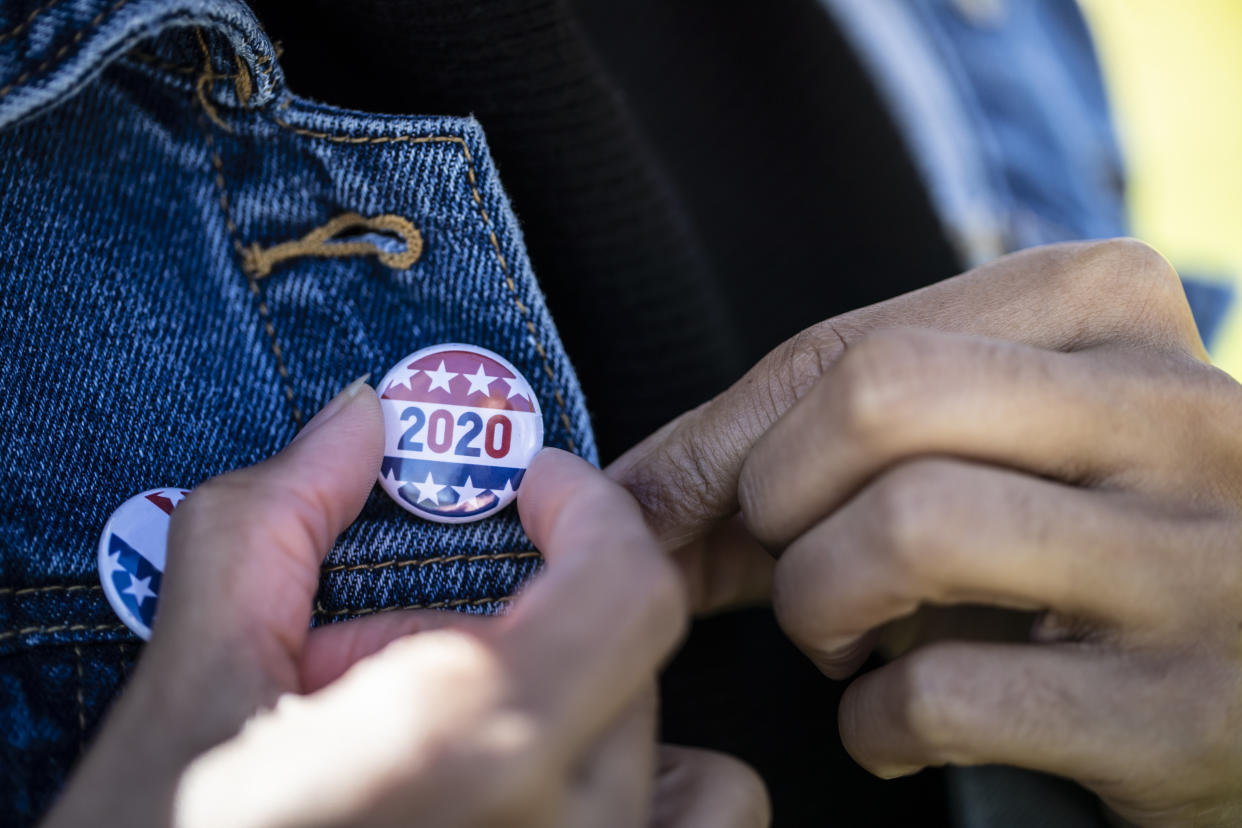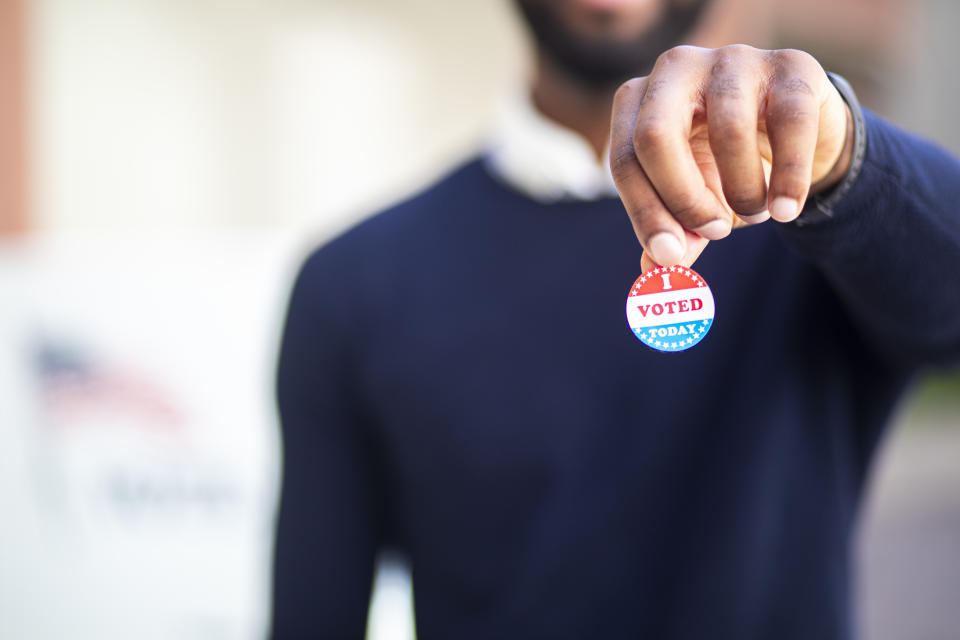Is there a dress code for voting? Here are the clothing items that can get you turned away from the polls

Presidential elections are always tense, but the ongoing pandemic, disputes over mail-in ballots, concerns about voter suppression and speculation that a clear winner may not be determined until well past Nov. 3 have ramped up feelings of anxiety and uncertainty this year. That’s all the more reason for those choosing to vote in person to make sure that they’re not turned away at the polls because of what they’re wearing.
Before voting on Election Day, it’s important to brush up on local guidelines regarding passive electioneering, the term which refers to the act of visiting a polling place carrying campaign signs or wearing clothing items, such as a Trump T-shirt or pro-Biden button, which express support for a candidate. Doing so could influence or even intimidate other voters.
“A state legislature may pass laws that restrict the apparel that a person may wear at a [polling place],” David Reischer, an attorney and CEO of LegalAdvice.com, tells Yahoo Life. “The rules vary by state, but generally California, Delaware, Kansas, Montana, New Jersey, New York, South Carolina, Tennessee, Texas and Vermont limit people from voting or appearing at a place where voting is taking place with clothing or apparel that advocates in favor of a particular candidate.”
Under such restrictions, he notes, “a person wearing a baseball cap that reads ‘Vote for Trump’ would be banned” — as would someone wearing a Biden-Harris 2020 cap or, in a 2020 flourish, face mask.
Other states — such as Maine, which allows anyone who is present at a polling place for the sole purpose of voting to wear a campaign button so long as it meets size restrictions, and New Jersey, which issues a disorderly persons offense to anyone wearing a “political button, badge or other insignia” within 100 feet of the polls — have their own highly specific rules regarding items of clothing rather than outright blanket bans.
Further complicating the issue is that statewide restrictions may hone in on candidate names only, but could also be extended to any item endorsing a particular political party or ballot issue; Texas, for example, bans items “relating to a candidate, measure or political party appearing on the ballot, or to the conduct of the election.”
The safest path forward is to leave any potentially controversial item in your car or handbag — along with your wireless device, also widely considered verboten in or near a polling place — and show up to vote in neutral garb, or bring a spare shirt. Otherwise, voters who want to make sure that, say, their Notorious RBG face mask, Black Lives Matter hoodie or red MAGA hat doesn’t flout the rules should do their due diligence.
"To ensure you aren't turned away from voting for wearing any campaign- or candidate-related clothing, voters should always visit the website for the office of their local secretary of state for all they need to know about polling place rules,” advises Vote.org CEO Andrea Hailey.

Even with official clarification, there’s always the possibility that an on-site election judge may use their own discretion to determine if something less overtly campaign-oriented (a “Will You Shut Up, Man?” T-shirt or “Choose Life” tote bag, for example) crosses the line. Typically, a voter will be asked to turn the item inside-out; refusing to do so could, however, result in being asked to leave the premises without casting a ballot.
As Reischer notes, a 2018 Supreme Court ruling theoretically gives voters more leeway. Justices reviewing the case, brought by members of the Minnesota Voters Alliance who argued that their free speech was violated when they were turned away because of their conservative Tea Party logos and “Please I.D. Me” pins, found that Minnesota’s ban against wearing a “political badge, political button or other political insignia” was too broad and unconstitutional as it applied. Essentially, targeting anything deemed “political” was overly vague and open for interpretation, Chief Justice John Roberts ruled, as it could cover anything from “All Lives Matter” shirt to a Ben & Jerry’s cap.
But Reischler says that ruling is “a little more blurry when it comes to slogans like ‘Make America Great Again’” or the “Hope” logo associated with Barack Obama’s campaign.
“But generally speaking, such clothing would be OK so long as it does not directly advocate for a particular candidate,” he adds.
And if something that doesn’t appear to be overtly against the rules gets banned anyway, Vote.org’s Hailey says it’s important for the rejected vote to speak out.
“If, for any reason, you are not allowed to vote and feel you have been denied unfairly, you should always contact the Election Protection Hotline, or your local elected officials, to report the incident immediately,” she tells Yahoo Life. “Everyone should be able to exercise their fundamental right to vote, and, ultimately, when more people participate, we create a stronger, more representative democracy.”
This story was originally published on Oct. 21, 2020, at 4:01 p.m. ET.
Read more from Yahoo Life:
Want lifestyle and wellness news delivered to your inbox? Sign up here for Yahoo Life’s newsletter


